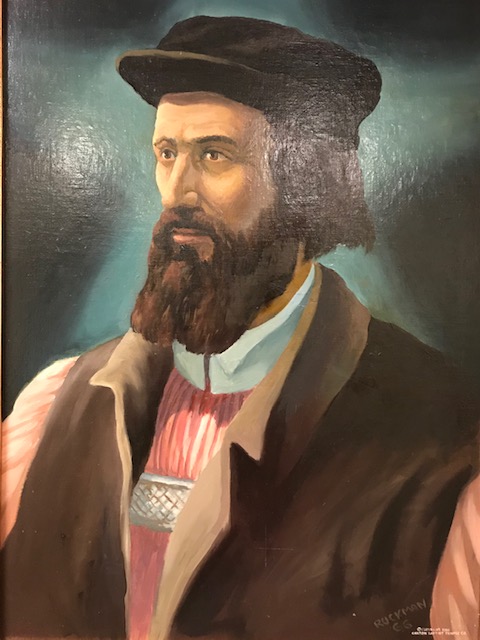John Wycliffe
1320 – 1384
Wycliffe was a Saxon, born in Hipswell, England. From Oxford University he received the doctor of theology degree in 1372. After serving as envoy to France, representing England in a dispute with the Pope, he returned to England and wrote against the secular power of the Papacy. In spite of attempts by the Church to have Wycliffe arrested and assassinated, he continued to write and preach. He maintained that no Pope or council was infallible, and that if their views contradicted the Bible, those views were wrong. He taught that the clergy should not rule as “princes of the church,” but should help the people and “lead them to Christ.”
No preacher ever regarded the condition of the people more sincerely or set about to help them more persistently than did John Wycliffe. Mingling among the common people, he developed an understanding for the poor. In a day when monks and friars were neglecting the ministry to the poor, Wycliffe’s attitude was one of a shepherd rather than a hireling. Like Jesus in Galilee, John Wycliffe preached to the poor and lost the favor of those in high places. He opposed their blind worship of something they did not understand while the priests made their understanding darker and their ignorance greater.
Wycliffe’s purpose was to bring to the common people the truth that the way of salvation lay through an understanding of spiritual light. In his preaching, he sought to develop an understanding of the Bible and its message of salvation through Jesus Christ. Convincingly he confronted his listeners with the demands of the Christian life. John Wycliffe’s message was one of hope and salvation in the midst of poverty, corruption, and misery.
In answer to the question, “How must the Word of God be preached?” Wycliffe once answered, “Appropriately, simply, directly, and from a devout, sincere heart.”
Finally prohibited by the Bishop of London from preaching, Wycliffe confined himself to writing and translating the Bible from Latin to English. Thirty-one years after his death, the Church ordered all his books burned, his bones dug up and burned, and his ashes scattered on the Thames River.

